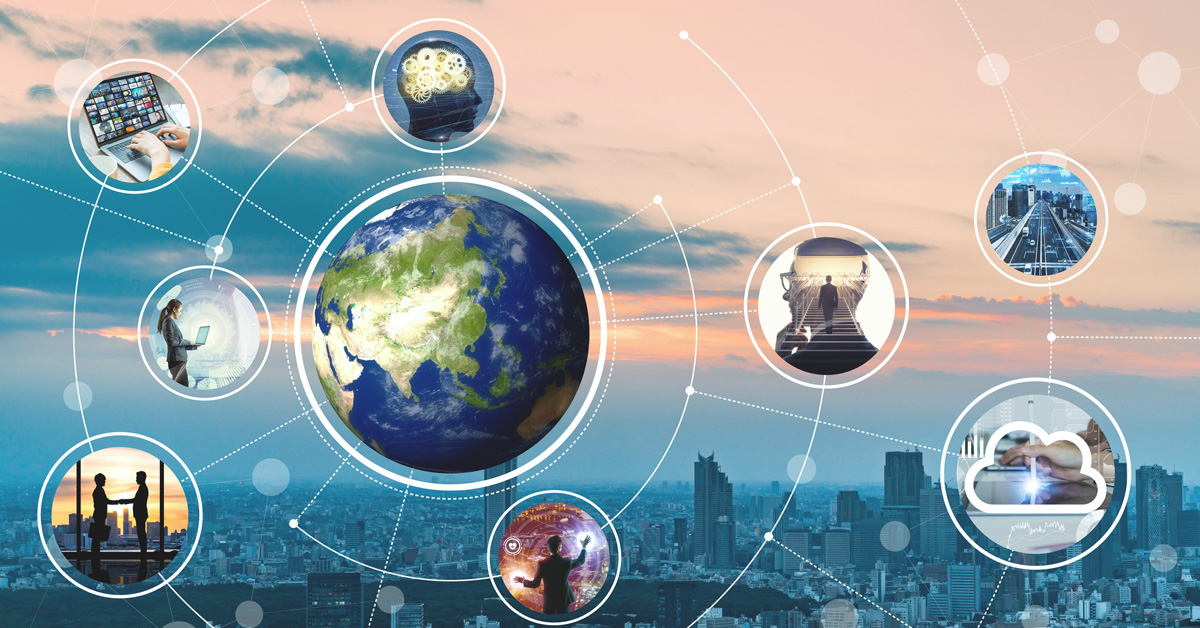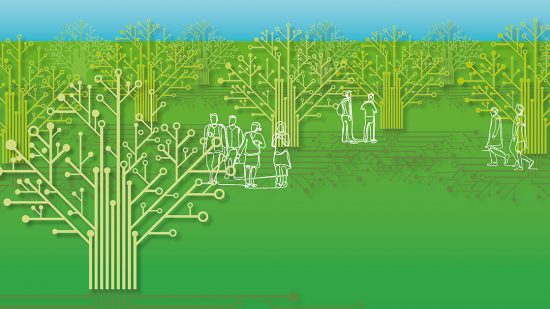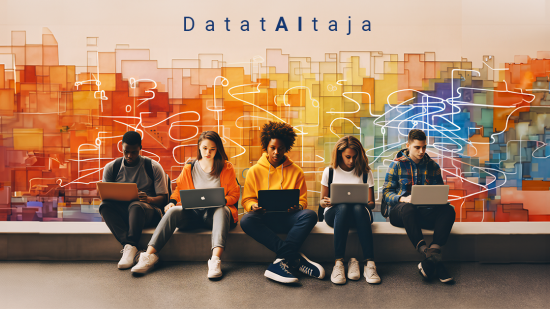In his column “Come back, information society”, YLE journalist Pekka Seppänen recalled the turn of the millennium, when the then-Commissioner for the Information Society Erkki Liikanen drew from the pioneering Finnish lessons to form the basic guidelines for the entire European Union. Seppänen considered the objective of an information-based society that has harnessed technology to still be important today and asked, “Why do we no longer talk about the information society, why do we no longer wait and hope for it? Did the information society actually come to fruition and therefore become part of our daily life?”
From the point of view of the Finnish Information Society Development Centre (TIEKE), the objective is now more important than ever. Work to accomplish an information society is being carried out in a wide front. Today, it appears in the form of new terms such as digitalisation, smart city development, business intelligence, basic digital skills, and people-centric technology development.
The information society is here – or is it?
The answer to Seppänen’s latter question about the realisation of the information society, and it becoming part of everyday life, is both yes and no. It was long believed that the fundamental pillar of the information society was the internet, the information superhighway that would ensure a functioning information society for everyone once access was guaranteed. We can probably say this level has largely been reached in Finland, but in the end it was not enough.
The information society of the future will build up the capabilities of both people and organisations for knowledge-driven action, continuous learning and technology-assisted activity.
We find ourselves in a situation where technology, at worst, supports information wars, divides people into bubbles, causes a massive strain on the environment via the manufacture of devices, and increases isolation for the disadvantaged. At the same time, technology at its best adds voices to news feeds, widely facilitates well-being, increases learning opportunities and helps solve pesky problems by e.g. optimising the energy consumption of real estate properties.
If we wish for the latter half of the scales to prevail, the information society of the future must be a people-centric society led with knowledge, it must be inclusive, competent, proactive, transparent, safe and ethical, and provide equal opportunities.
The information society of the future will build up the capabilities of both people and organisations for knowledge-driven action, continuous learning and technology-assisted activity. On the other hand, the grotesque caricature of the information society is a world in which the role left to the people is passive consumerism or being devoured by the troll armies.
In the future, TIEKE and their partners will have their work cut out for them in order to successfully develop the desired information society.
The information society is built on competence
The need to improve one’s competence as technological development marches forward, with the utilisation of data and working side by side with technology such as AI and robotics is emphasised further. Competence must be developed swiftly alongside work, and acquiring and showing this competence is largely digital.
For TIEKE, this means an increasing need for identifying and defining the changing competence levels, showing the expertise via methods such as badges, and cooperation with various parties in areas such as platform-independent competence profiles. In addition to the familiar eSkills examinations to improve digital competence, tools such as Tiviittori are also needed in order to map the current level of competence. We want to continue to facilitate the development of digital skills in both educational institutions and businesses into the future.
Technology solutions for the information society’s needs
Alongside technological innovations, we need a strong vision on how to utilise developed technology in a manner in line with our shared values. Are human focus, transparency, and ethics taken into account? Is the carbon handprint of the solutions large and the footprint small? Are we supporting greater understanding or antagonism, are we aiming for cliques or well-being?
Alongside technological innovations, we need a strong vision on how to utilise developed technology in a manner in line with our shared values.
TIEKE’s mission is to create discussion, build a common vision and promote technology development in line with our values, including through development projects. One conversation starter can be the spring issue of TIEKE’s Tiedosta magazine, which offered perspectives on sustainable technological development under the theme “Into a clean future through digitalisation”.
Getting the most out of technologies
The added value of technology to the information society comes from its practical application. No cutting-edge research or lab result is going to bring about a change by itself, but instead the lessons and solutions must be widely adopted throughout society: in organisations and homes, schools and real estate.
The use of technology per se is not the purpose of an information society. Technology is a tool that can help mitigate climate change, offer proactive health care and find ways to free up time to allow workers to focus on tasks best suited for people. In our complicated world, we must work together to ensure we possess the necessary tools to realise the expected benefits.
As a cooperative platform and an independent actor, TIEKE plays a vital role in building understanding and a common direction.
TIEKE helps organisations find the massive opportunities in data-intensive services in all industries, required for meeting the needs of citizens and society alike. We have had positive experiences of this via e.g. the DigiHyöty (DigiGain) project, which facilitates the digitalisation of SMEs, and the DigiTähti (DigiStar) project created to accelerate the digitalisation of the tourism industry. Finns are well equipped to create success, jobs and well-being through technology whilst respecting human dignity and environmental values; development such as this can be supported by the services provided by TIEKE.
A common direction is needed
As a cooperative platform and an independent actor, TIEKE plays a vital role in building understanding and a common direction: together, we improve understanding of the opportunities ahead, identify and collect change requirements and bring the change forward through influencing decision-makers, cooperation with businesses, and communication. The need for organisations to cooperate, network and learn together grows, and bringing the change forward is easier together — also through experimentation. TIEKE has found a natural role as the bridge builder and cooperation forum, facilitating e.g. the eInvoice Forum, AI / Big Data Forum Finland, and the Badge Finland network.
The information society remains an important goal
To paraphrase Pekka Seppänen, the information society is simultaneously new and familiar and a good direction for Finland and Finns, perhaps the whole world. We are not alone in our thinking either, as minister Sirpa Paatero appointed an advisory board this week to prepare a digitalisation-based technology policy that facilitates well-being and directs competitiveness. Although the information society is not specifically mentioned, this union of the public and private sector led by Risto Siilasmaa will work hard to ensure Finland remains the leading country in technology and data utilisation in the future.
From an information society development point of view, the technology advisory board has a number of key issues to address. Technology and data already play a major role in our society, but are we applying them in ways that matter? We need more innovative solutions to help us solve pesky problems such as climate change and promote good living. Are there clear ground rules in the field and are we involved in defining those rules?
We need guidance on solutions and strategies that are ethically sustainable from both the human and environmental perspectives. Are we able to swiftly develop competence, or do some get left behind? In an information society, both organisations and individuals have the understanding and opportunities to utilise technology, create value from data and information, and the opportunity to influence the kind of information society we are building together.
At TIEKE, work towards a people-centric, competent, competitive, and co-operative information society continues. Join the conversation at our events, take advantage of our membership and services, or help us build an influential development project. Let’s go together!
Best regards,










